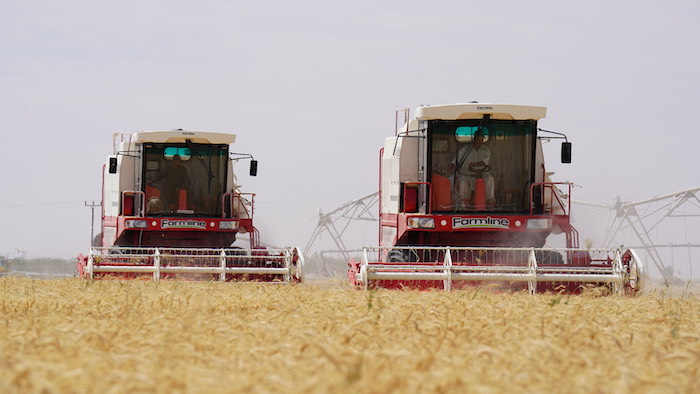
Muscat: The "Food Security Lab 2024," organised by the Ministry of Agriculture, Fisheries, and Water Resources, continues its work in Muscat. Held in collaboration with the Oman Vision 2040 Implementation Follow-up Unit, the National Investment and Export Development Program "Nazdar," the National Employment Program, and private sector companies, the lab focuses on enhancing the food security sector and offering investment opportunities with local added value. The lab’s work is set to conclude this Thursday.
Dr. Masoud bin Suleiman Al Azri, Director General of Agricultural and Fisheries Marketing and Official Spokesperson at the Ministry, announced that 30 projects with a total investment exceeding OMR 10 million will be signed by the end of the lab’s work.
He explained that these projects are centred on strategic crops where self-sufficiency rates remain low, such as onions, garlic, and potatoes, alongside initiatives in fish farming, fish markets, and water resource projects. The aim is to raise self-sufficiency rates, reduce imports, increase export value, and create employment opportunities for Omanis.
Dr. Al Azri noted that the food security labs, which began in 2021, focus on attracting investment, enhancing local content, and promoting added value and employment. In the current fourth lab, two new pillars have been introduced: strategic planning and digital transformation. The Ministry has tasked the "Idhkaa" group with the digital transformation project, which aims to digitise all 248 services offered by the Ministry by the end of 2025. As part of this initiative, 10 new services will be launched on the "Tharawat" platform, providing comprehensive access to all Ministry services.
Speaking about the Ministry’s ongoing investment projects in line with Oman Vision 2040, Dr. Al Azri highlighted that over 130 projects are underway across Oman, with some already in trial or commercial operation. The total investment value of these projects exceeds OMR 1 billion. He cited the success of wheat production as an example, noting an increase from 2,000 tonnes in 2022 to over 10,000 tonnes this year, with further expansion anticipated through government support and incentives for farmers.
Dr. Al Azri also mentioned the Ministry's allocation of agricultural areas for crops such as mangoes and lemons and ongoing advisory studies for agricultural cities in Saham and the Najd Agricultural Region. The Ministry of Economy, through its "Diversification" program, is also working on the economic clusters project in Najd, which aims to bolster food security and reduce the import bill.
Oman has made significant strides in achieving self-sufficiency in several key crops and products, with rates exceeding 75 per cent for some. These include fish at 158 per cent, dates at 97 per cent, tomatoes at 83 per cent, and milk at 92 per cent. Dr. Al Azri expressed optimism that by the end of the current five-year plan in 2025, Oman will achieve further improvements in self-sufficiency.
Currently, Oman imports around 40 per cent of its food, but there are already high self-sufficiency rates in products like eggs and white meat. Dr. Al Azri expressed hope that completing projects like the Al Namaa Poultry Project will further elevate these rates.